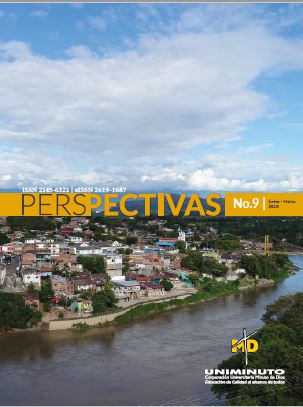Organized farmers contributing to the social construction of Colombia
Article Sidebar
How to Cite
Article Details
Main Article Content
Abstract
The historical development of the farming community in Colombia has been object of significant abandonment by the State, as evidenced by the absence of commitment to guarantee their rights and the lack of recognition of their identity, which has led them to demand their claims in multiple forms. All Colombians know that the genesis of the internal conflict that the country has lived during the last fifty years is partly found, in the claim that some peasants of certain regions make to the State (a claim known as “warlike territories”, according to María Teresa Uribe). Therefore, and given that the institutions never achieved to cover the basic needs of vast regions of Colombian territory, which has been turning the peasants into a social class marginalized from the economic, political and social development of the country, this article will try to answer the following question: How has the absence of the Colombian State in rural areas permeated the social reality of the farmers and how have they managed as subjects or social agents their rights and state recognition in the midst of the country’s internal conflict?
References
Barón, O., & Espitia., L. (2015). Saberes campesinos. Bogotá: Editorial Corporación Universitaria Minuto de Dios.
Dahrendorf, R. (1959). Class and Class Conflict in Industrial Society. Stanford, CA: Stanford University Press.
Galtung, J. (1998). Después de la violencia: 3R, reconstrucción, reconciliación, resolución. Bilbao: Bakeaz/Centro Documentación Estudios para la Paz.
Gómez Buendía, H. (2003). El conflicto, callejón con salida. Informe Nacional de Desarrollo Humano para Colombia. Recuperado de http://hdr.undp.org/ sites/default/files/colombia_2003_sp.pdf.
Unión Europea. (2011). Campesinos, tierra y desarrollo rural. Reflexiones desde la experiencia del Tercer Laboratorio de Paz. Recuperado de http://eeas. europa.eu/archives/delegations/colombia/ documents/projects/cartilla_tierra_y_desarrollo_lab_paz_iii_es.pdf.
Schmelkes, S. (2006). El conocimiento campesino. Revista Mexicana de Investigación Educativa, 11(28), 333-337.
Sousa Santos, B. (2011). Epistemologías del sur. Utopía y Praxis Latinoamericana, 16(54), 17–39. Recuperado de https://dialnet.unirioja.es/descarga/articulo/4231309.pdf.
Zapata Callejas, J. S. (2014). La teoría del estado fallido: entre aproximaciones y disensos. Revista Relaciones Internacionales. Estrategia y Seguridad, 9(1), 87–110. Recuperado de http://www.redalyc.org/pdf/927/92731211004.pdf

